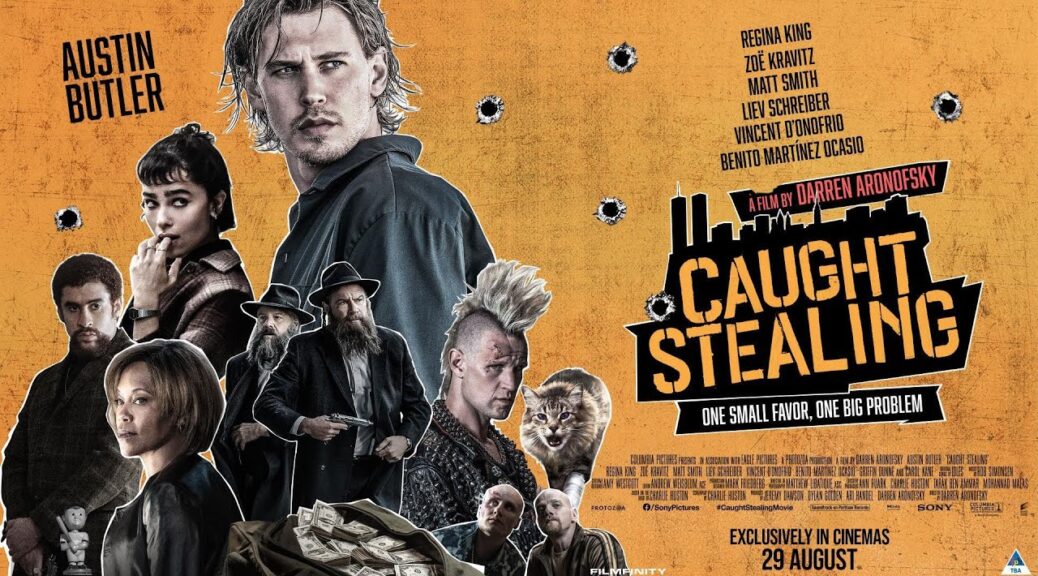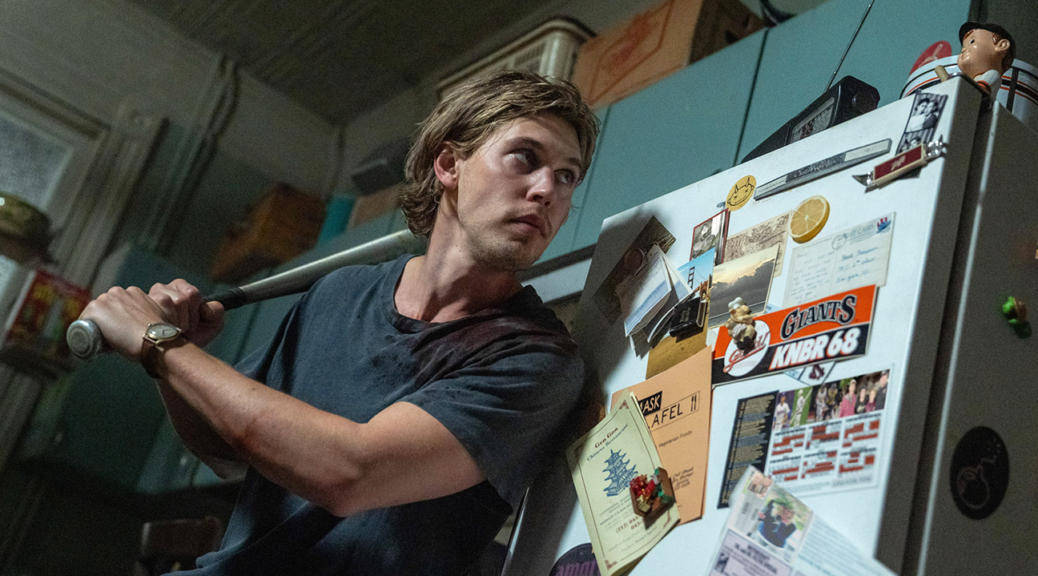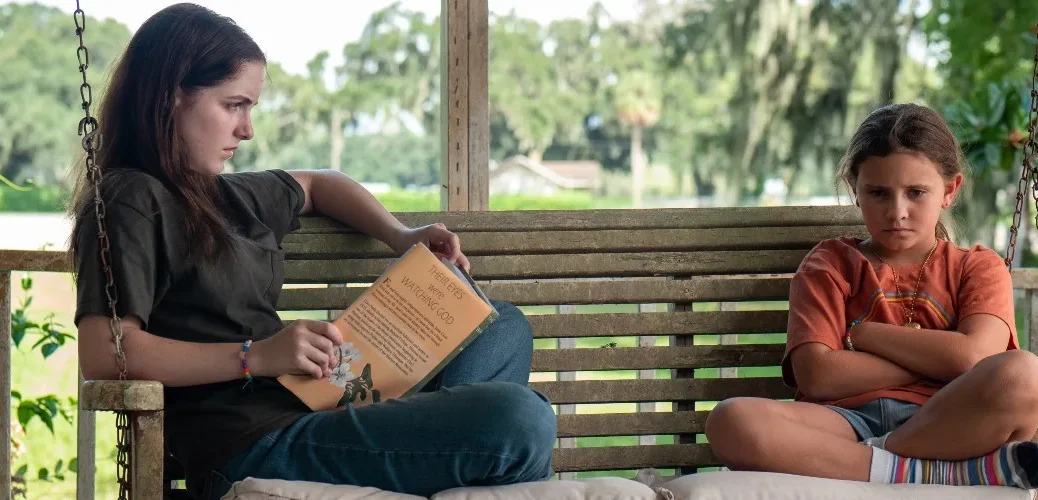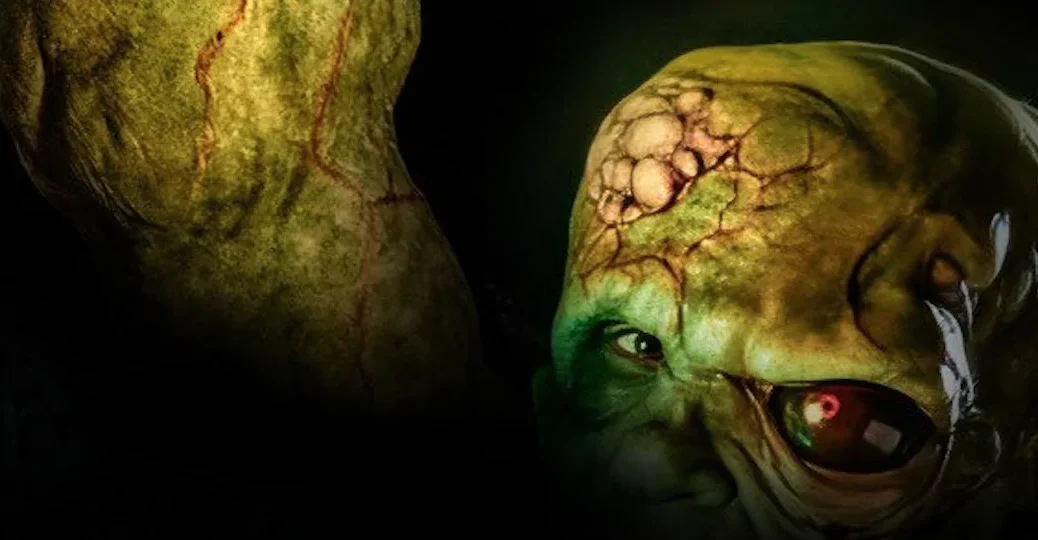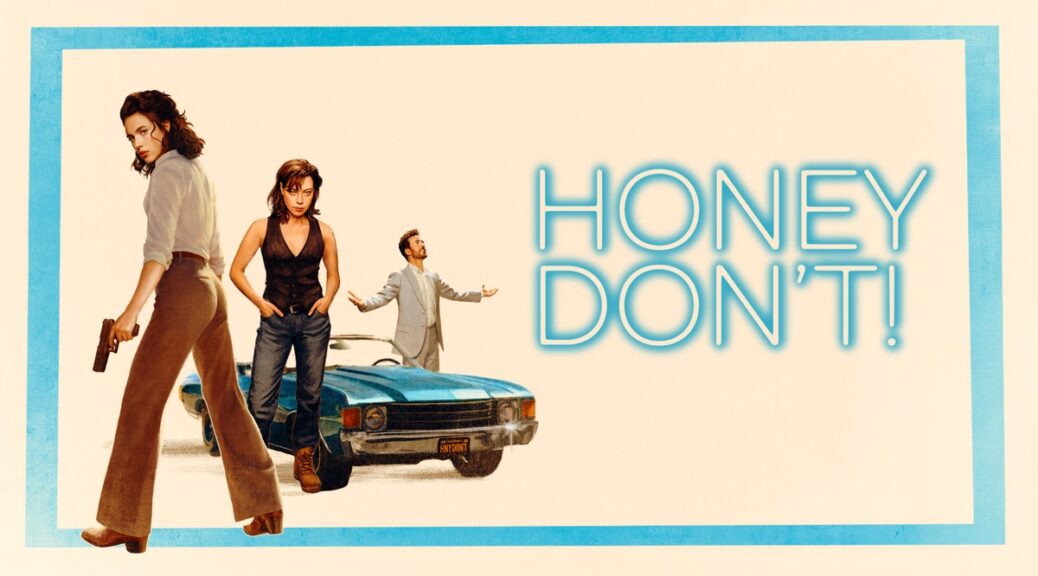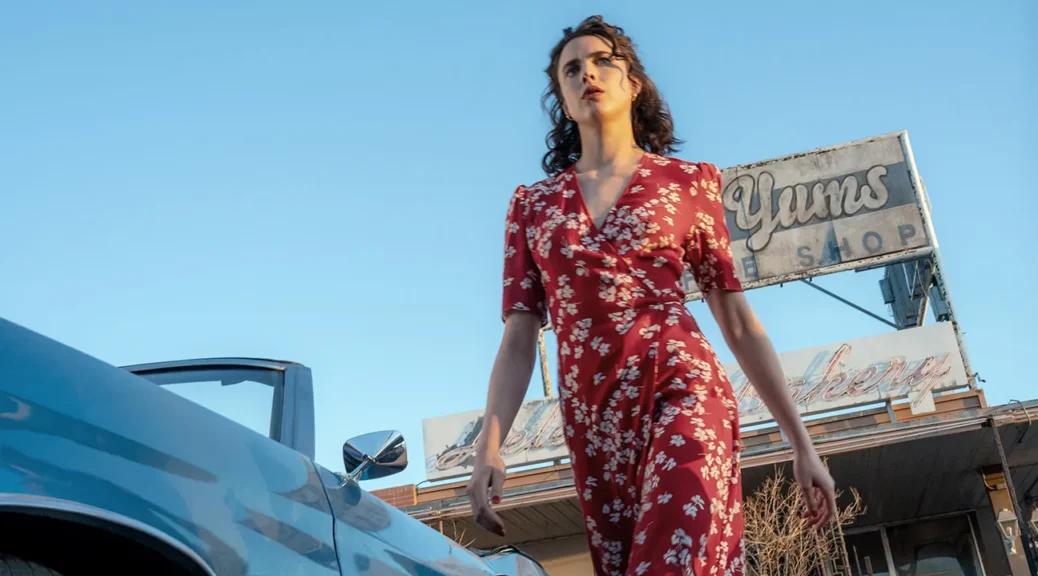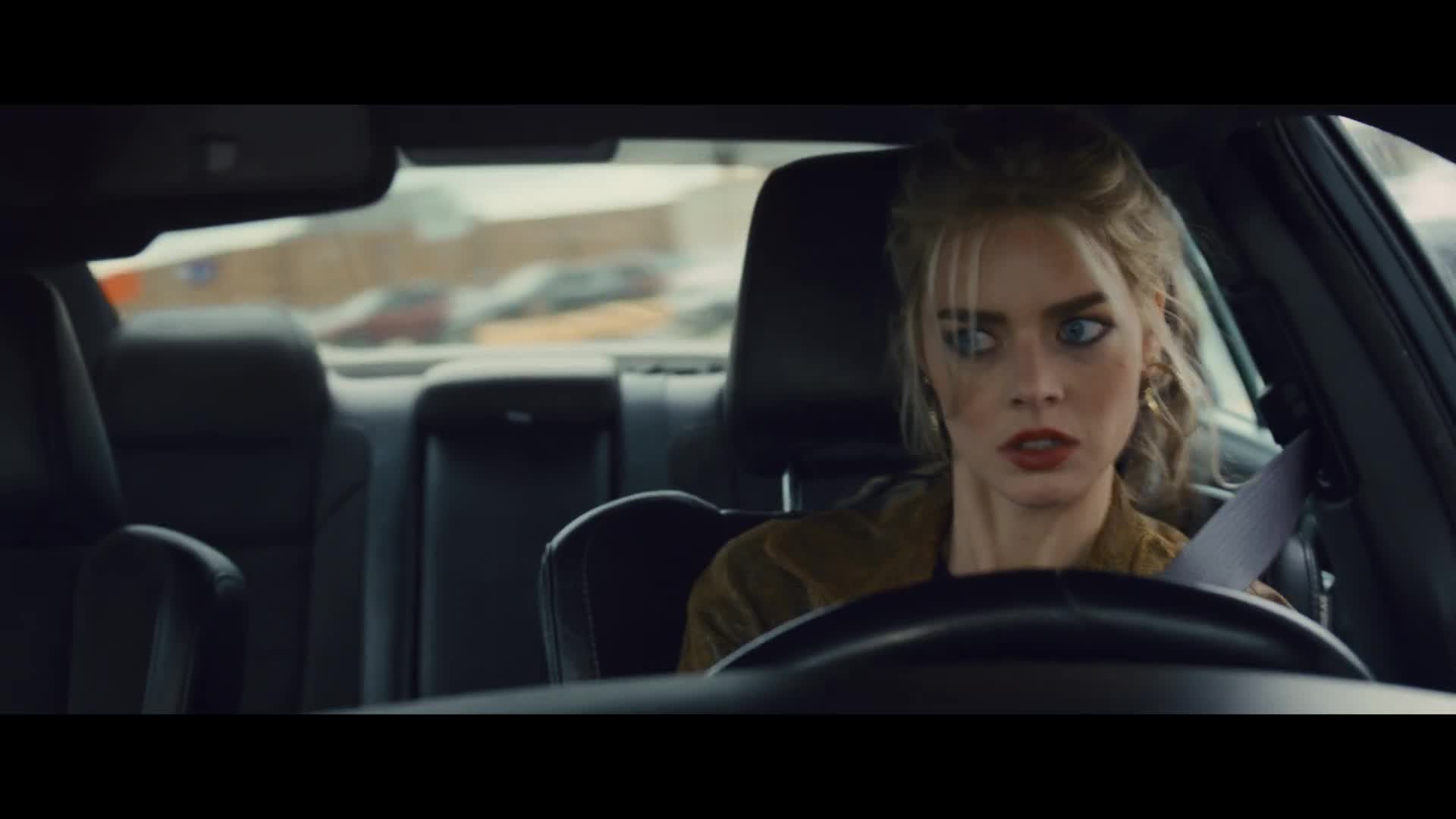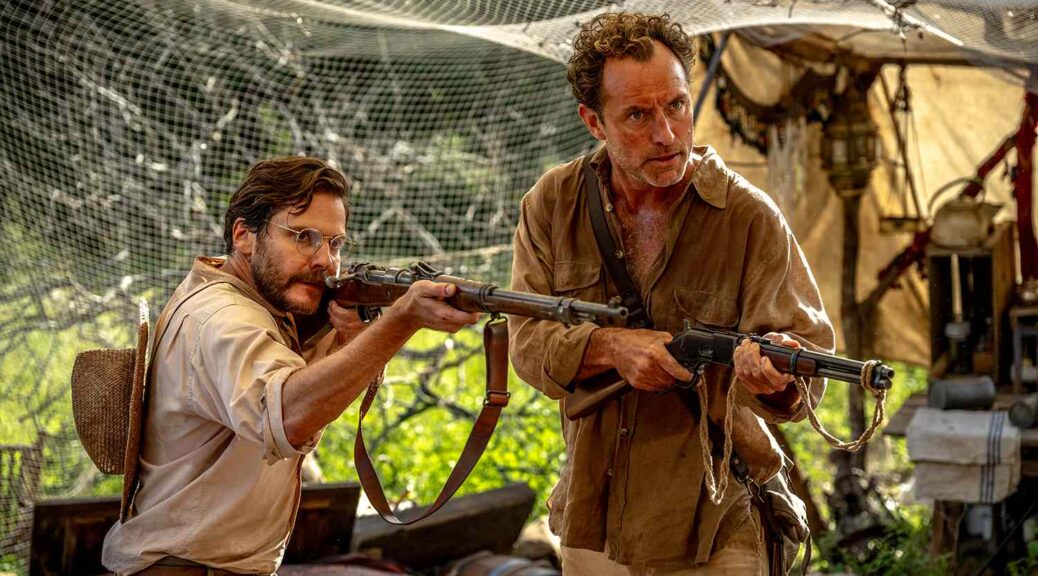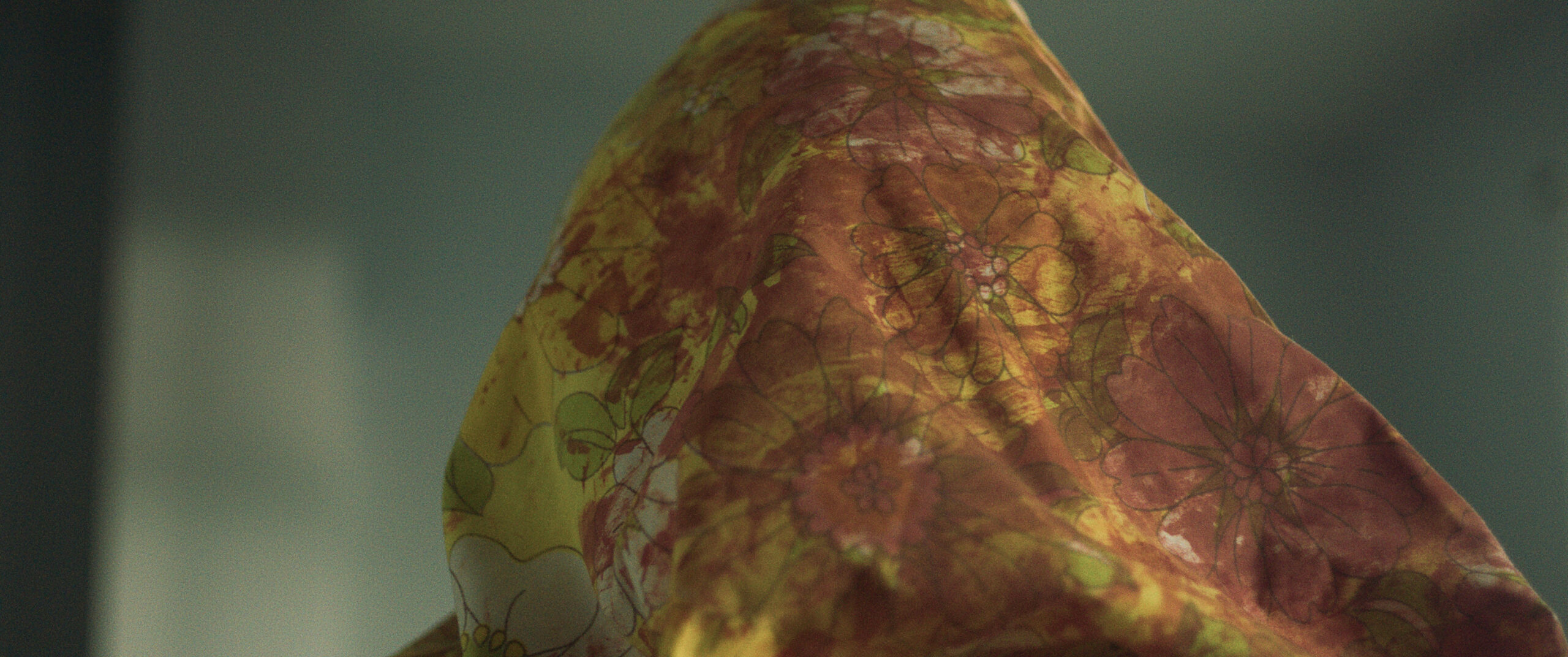Monthly Archives: August 2025
Baseball Metaphors and Drug Money
Caught Stealing
by Hope Madden
Watching the trailer for the new Austin Butler actioner Caught Stealing, it’s easy to forget it’s a Darren Aronofsky film. Yes, the guy who swung from Requiem for a Dream to Noah has an interest in varied material, but a zany, sexy, urban action romp? None of those words feel right for an Aronofsky.
Fitting, because that’s not at all what Caught Stealing is. Based on the Charlie Huston novel, the film trails a good-looking, well-intentioned New York alcoholic named Hank (Butler). Hank sometimes looks after his punk rock neighbor Russ’s (Matt Smith) cat, and Russ has to rush back to London on account of his dad’s stroke. In his rush, Russ seems to have forgotten that a whole bunch of very bad people are looking for something he has, and they assume Hank knows where to find it.
Yes, that does sound like it could be sexy and zany. The wild bunch that populates the tale—Hank’s girlfriend Yvonne (Zoë Kravitz), his hard rockin’ hippie boss (Griffin Dunne), the Russians (Nikita Kukushkin and Yuri Kolokolnikov), the Hebrews (Liev Schrieber and Vincent D’Onofrio), and the cop (Regina King)—certainly carry a madcap vibe. But the film turns on a dime with an act of shocking violence, and Aronofsky reminds us again that we’re never fully safe in his hands.
It could feel like a mismatch—the hyper serious, even sometimes punishing auteur helming a glossy mistaken identity action thriller. It’s not. It’s probably the best thing that could have happened to the property.
It’s fun to see Aronofsky—who scarred us so deeply with Requiem, and Black Swan, and The Wrestler, let’s not even talk about Mother!—cut loose a little bit. Laugh. Shoot some people.
But we never really lose him. His camera is trained on all the details a more glamorous version of the film might skim over: the blood and urine pooling under Hank after his first beating., for instance. Who but Aronofsky would have chosen to film Hank’s drunken, projectile vomit from the point of view of the window it slaps against?
It also helps that the hijinks are driven by such remarkable talent. Smith and Dunne are both a riot, and King toes the line between comic foil and badass like the professional she is.
The depth and the darkness, the broken humanity and festering shame, those are the themes that might surprise folks looking for the new Austin Butler blockbuster. They’re lucky.
War Rooms
The Roses
by George Wolf
If you’re anything like me, you’d pay to see Olivia Colman and Benedict Cumberbatch do anything from cranking up polka music to telling a story about a rucksack full of coke and a sword. Well, good news for both of us. They do all that and plenty more in The Roses, a fun and funny update of The War of the Roses from 36 years ago.
Director Jay Roach starts with a flashback (and some nifty de-aging) to give us the impulsive and passionate start to Theo (Cumberbatch) and Ivy’s (Colman) relationship. Ten years later and the married Brits have moved to California where he’s an architect, she’s a part-time culinary artist and they have two pre-teens.
Life is good, until the worst night of Theo’s professional life also gives Ivy a springboard to becoming a celebrity chef. Three more years go by, and she’s the jet-setting breadwinner while he’s staying home and raising the kids via a regimented, competitive style that Ivy always resented.
Colman and Cumberbatch are perfection, with an instant chemistry that lets the cracks in the marriage seem organic and relatable. Trouble is brewing, and it’s sensed by their group of friends Including Zoe Chao, Andy Samberg and a priceless Kate McKinnon as a woman not shy about awkwardly exploring social boundaries.
It’s all very clever and witty in an acerbic and oh-so-British sort of way, until screenwriter Tony McNamara adds some good ol’ American meanness to the mix. From then on, The Roses gets laugh-out-loud funny. McNamara (The Favourite, Poor Things) serves up a riotous contrast between the American and British ways of arguing, and this cast brilliantly turns his phrases into moments of joyful vitriol.
Then, for the push over the cliff, Alison Janney strolls in with a fire-breathing cameo as a brutal divorce lawyer, and the down-and-dirty battle we’ve been waiting for finally begins.
Anyone who remembers the original will appreciate the subtle twist of this war’s end. But The Roses has no trouble standing on its own. Sharply written, nicely paced and impeccably performed, it’s a winning adult comedy that finds big laughs inside some all too familiar modern foibles.
Scenes from the Opioid Epidemic
What We Hide
by Hope Madden
At 19, Mckenna Grace has racked up 71 TV and film acting credits, with 11 more movies currently in post-production. That’s insane. Naturally not every project was a winner. But from her earliest film work, like Marc Webb’s 2017 drama Gifted, Grace’s control and authenticity make her memorable, even when the projects are not.
Writer/director Dan Kay’s streamer What We Hide benefits immeasurably from Grace’s presence. She plays Spider, 15-year-old daughter of an addict. With her younger sister Jessie (Jojo Regina), Spider discovers the overdosed corpse of her mother in the opening moments of the film.
Recognizing that foster care would almost certainly mean splitting her from her sister, Spider decides to hide the body and say nothing. Now all the girls have to do is steer clear of their mom’s volatile dealer (Dacre Montgomery), the town’s goodhearted sheriff (Jesse Williams), and the latest case worker, whom they not-so-affectionately call “Baby Thief” (Tamara Austin).
Grace is terrific, and the chemistry she shares with Regina buoys some otherwise clunky dialog. The cast around them does admirable work with even more obvious characters. The always welcome Forrest Goodluck (Revenant, Blood Quantum, How to Blow Up a Pipeline) carries love interest Cody with a naturalism that gives his scenes an indie vibe that comes close to offsetting the after school special tenor delivered by the rest of the effort.
Commendable performances from a solid cast don’t make up for Kay’s uninspired direction. Bland framing marries banal plotting to leech some of the vibrance this cast injects into scenes.
It doesn’t help that the story veers so rarely from the obvious that the occasional flash of originality—the couple from the motel, the case worker’s phone calls—stand out as opportunities left unexplored.
Had Kay been able to situate his tale from the opioid epidemic in a recognizable place, given the community some personality, or found a less by-the-book way to complicate What We Hide, he might have had something. Instead, the film is a well-intentioned waste of a good cast.
Some Dude with a Mop
The Toxic Avenger
by Hope Madden
My friend has photographed Lloyd Kaufman’s testicles. That means that in a game of Six Degrees of Lloyd Kaufman’s Testicles, I would win.
In other news, a bunch of talented, funny humans have rebooted Kaufman’s iconic 1984 Troma classic, The Toxic Avenger. There are few films I have more impatiently anticipated than this, plagued as it was by a two-year delay in distribution. But now you can see writer/director Macon Blair’s reboot in all its goopy, corrosive, violent, hilarious glory.
Though the story’s changed, much remains the same (including Easter eggs a plenty!).
Winston (Peter Dinklage), single stepfather to Wade (Jacob Tremblay) and janitor at a factory that makes wellness and beauty supplements, finds that he’s dying and his platinum insurance doesn’t cover the treatment that could save his life. Attempting to steal the money to cover the treatment, he saves a whistleblower (Taylour Paige) from a group of horror core hip hop parkour assassins but winds up in a pool of toxic sludge.
Let’s pause for a second to marvel at this cast. Dinklage is one of the most talented actors working today, and as Winston he is effortlessly heartbreaking and tender. He’s also really funny, and this is not necessarily the kind of humor every serious actor can pull off.
Paige, who has impressed in Zola and Ma Rainey’s Black Bottom, among other film, also seems built for Blair’s particular brand of Troma comedy. And Tremblay, beloved since his excruciatingly perfect turn in Room as a small boy, gives the film its angsty heartbeat.
Plus, Kevin Bacon as the narcissistic weasel owner of the wellness and beauty empire killing the planet. He hates to be called Bozo (IYKYK).
Blair made his directorial debut with 2017’s underseen treasure, I Don’t Feel at Home in This World Anymore, though he’s better known as the lynchpin performer in many of Jeremy Saulnier’s films (Blue Ruin, Green Room, Murder Party). He and Kaufman both deliver laughs in small roles, but he impresses most as the mind behind the mayhem.
His vision for this film couldn’t be more spot-on. Joyous, silly, juvenile, insanely violent, hateful of the bully, in love with the underdog—Blair’s Toxic Avenger retains the best of Troma, rejects the worst, and crafts something delirious and wonderful.
Screening Room: Honey Don’t!, Relay, Eden, Trust, We’re Not Safe Here
Role Reversal
Honey Don’t!
by Hope Madden
An entertaining if slight thriller of the old school, hard-boiled detective sort, Honey Don’t! is director Ethan Coen’s follow up to 2024’s Drive-Away Dolls. The second in a lesbian B-movie trilogy, the film sees Margaret Qualley as Honey O’Donahue, a modern day (if landline and analogue) private detective in sun drenched Bakersfield, CA.
Sometime before opening credits roll, Honey got a call from one Mia Novotny (Kara Peterson), the corpse in the overturned car down a dusty canyon road. So obviously, Honey’s not actually working that case. Still, Mia had called saying she was in danger, and business is kind of slow, so what could it hurt if Honey digs in a little bit?
What she finds is an incredibly corrupt minister (Chris Evans), a missing niece (Talia Ryder), a sexy cop (Aubre Plaza), a sexier French woman on a Vespa (Lera Abova), more bodies and more leads. But no real case to solve.
Writing again with Tricia Cooke, Coen has fun recasting a lot of the romantic, tough guy mythology of the private dick and Qualley carries herself and that mythology well. And while each supporting turn is, on its own, convincing and solid, few of the characters feel like they exist in the same film.
At turns punch drunk, zany, dark, gritty, absurd, and lighthearted, Honey Don’t! causes tone change whiplash.
The cinematic sleight of hand required of any whodunnit worth its salt works on the level that it’s a surprise, but again it delivers a tonal shift that brings the film to a screeching halt.
Suddenly the slapstick comedy, delivered with panache and color and elevating the pace of much of the movie, feels not just out of place but ill conceived. The fact that the more comedic the film the more violent the imagery also feels wildly at odds with the seriousness of the final act.
Qualley has no trouble click-clacking her heels no matter the scene or tone, and both Evans and Charlie Day, as a cop with a crush on Honey, are perfect in a breezy if violent comedy about oblivious men in a world where they are unnecessary. And certain scenes feel like the polished gem of any Coen Brothers film. But Honey Don’t! can’t string enough of these together to create anything lasting.
High in the Middle
Eenie Meanie
by Hope Madden
Remember how great Cleveland looked in Superman? Writer/director Shawn Simmons takes us back to The Land, as well as to Toledo, for his thriller set among Ohio’s low rent criminal underbelly, Eenie Meanie.
It’s not exactly as tourism friendly as Superman.
Samara Weaving is Edie, and when we meet her, she’s really struggling to make something of her life. A day job as a bank clerk, night classes, maxed out credit cards, bleary nights studying. And then her one mistake—she stops by to share some news with her ex, John (Karl Glusman, The Bikeriders, Watcher).
But John’s gotten himself into some trouble. And try as she might to leave him and his trouble behind, the semi-fatherly crime lord she used to work for (Andy Garcia, delightful) will kill John unless Edie saves him. And to do that, she falls back on some old skills as a getaway driver in a big score.
Simmons has crafted a fun, twisty, funny thriller full of sharp turns. Weaving effortlessly carries the film as the tenderhearted badass who knows better. Glusman is infuriatingly excellent as that epic dumbass you want to smack but can’t help but hug. And maybe also smack.
Solid support from Garcia, Steve Zahn, Mike O’Malley, and Randall Park fills every scene with laughs, pathos, violence, and fun. But it’s the sly way Simmons braids together tales of co-dependence, trauma, loyalty, and resilience that gives Eenie Meanie unexpected heft.
Weaving has proven her genre moxie again and again (Ready or Not, Mayhem, The Babysitter, Guns Akimbo, Azrael), so it comes as no surprise that she brings the goods as the lead in an action comedy thriller. What’s impressive is the honesty and the genuine emotional conflict she expresses within this relationship.
She and Glusman revel in the dysfunction, played for exasperated laughs in the early going. But as Simmons tale develops, unveiling more of their relationship and backstory, that same chemistry takes on a relevance and power that allows Eenie Meanie to deliver a climax more powerful than you might expect.
Suspicious Minds
Eden
by George Wolf
Eden tells a fascinating story. And it tells that story in a star-studded, well-crafted way that’s rarely dull, even when the weight of its melodrama gets heavy enough to be nearly undone by the film’s parting shot.
Director Ron Howard joins co-writer Noah Pink to recount a historical tale “inspired by the accounts of those who survived” as a parable of greed, power, suspicion and annoying neighbors.
“Democracy, Fascism, war. Repeat.” So yeah, still plenty timely.
In the years just after WW1, Dr. Friedrich Ritter (Jude Law) and his partner, Dore Strauch (Vanessa Kirby), left civilization for a hardscrabble existence on the Galapagos Island of Floreana. Convinced that mankind was finished, Ritter became determined to write a new philosophy that would save humanity from itself, and in pain…find salvation.
His writings were picked up by the occasional passing ship, eventually attracting quite a following among others looking for a new life. And that, of course, led to the very thing Ritter didn’t want on his island: more people.
Heinz Wittmer (Daniel Brühl), and his wife Margaret (Sydney Sweeney) arrive first, inspired by Ritter’s vision and hoping for a better climate for their son Harry’s (Jonathan Wittel) tuberculosis.
The Wittmers – especially Margaret – prove tougher than Ritter imagines, but the Baroness Eloise Bosquet de Wagner Wehrhorn (Ana de Armas, scene-stealing and never better) is a larger-than-life problem no one expected.
The Baroness arrives on Floreana with servants/lovers and a grand plan to build an ulta-exclusive hotel for the wealthiest of tourists. De Armas digs in, crafting her as a shameless narcissist, so ruthless and sociopathic that she’d be cartoonishly absurd if not for the gaslighting cult of personality we wake up to every day.
The entire cast shines. And like her or don’t, Sweeney continues to impress with another film that challenges her range and physicality (Margaret must fight off wild dogs and give birth alone…damn!) while eschewing any shades of empty pinup girl glamour.
The running time pushes well past 90 minutes, but Howard keeps things humming right along. The dangerous motives, shifting alliances and double crosses create an over the top, sometimes darkly funny concoction that pulls us in, fascinated by who will emerge the victor in this battle for the unhappy high ground.
And when the inevitable historical update arrives with the credits, we see footage of the actual people who fought this fight…and they’re laughing, smiling, waving! Like the surprising Maria Callas footage in last year’s Maria, you wonder where these happy people have been hiding the last two hours.
Bet they could have shed more light on what life was really like on the island of lost smiles.
But would they have been as much primal, pulpy fun?
Bagheads
We’re Not Safe Here
by Hope Madden
The nightmarish images and unsettling sound design of writer/director Solomon Gray’s We’re Not Safe Here more than make up for its narrative stumbles.
A lot of films open on a scene of horror to be contextualized later in the movie. Likewise, Solomon sets the stage early with a swift, troubling little gem of a horror show. But interestingly, the tale he builds around it taps into a terror more subconscious and dreamlike than what you might expect.
Sharmita Bhattacharya is Neeta, a schoolteacher by day/artist by night who’s been unable to get started on her latest painting. Frustrated at the easel one night, she’s surprised by a visit from Rachel (Hayley McFarland), another teacher who’s been missing. Frantic and increasingly panicked, Rachel spills a story that began in her childhood. Something she thought she’d lost has found her again.
Aside from some very intimidating figures wearing bloody pillowcases over their heads (creepy!), We’re Not Safe Here is primarily a two-person show. McFarland is masterful, her paranoid madness tipped with a teacher’s command of the room. She’s mesmerizing.
Bhattacharya struggles a bit. Neeta is also troubled, and the performance feels stiff and unsure until the character gives into her demons. But there are moments between the two of them that are deeply upsetting. I mean that in a good way.
Gray’s use of setting—Neeta’s home, every wall cluttered with her sketches and paintings, every surface littered with books—creates a busy, fascinating space rich with potentially spookiness. A meandering camera and effective sound design capitalizes on what the set design has crafted: a lovingly lived-in space turned suddenly suspicious. The filmmaker evokes a kind of paranoia that feeds the perfect atmosphere for his film.
There’s a looseness to the script that often serves the film’s maniacal undercurrent. What’s delusion? What’s really happening? And is it contagious?
Gray refuses to fit all the pieces together, a choice that mostly pays off. The act structure and finale are rigid enough to give the tale a feel of completion. While a lingering vagueness in the backstory is frustrating, it also allows the imagination to veer into its own halls of madness.
